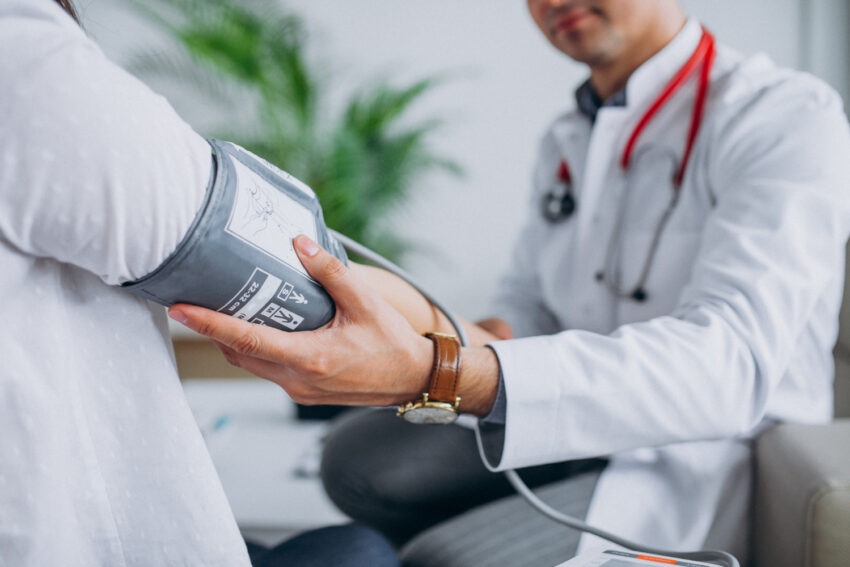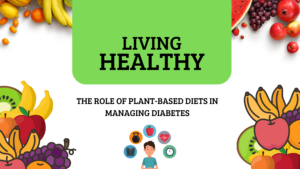Across the globe, hypertension, also known as high blood pressure, afflicts millions, leading to an alarming number of premature deaths and disabilities. As outlined by the World Health Organization (WHO), hypertension has solidified its position as one of the prime causes of premature death worldwide. With a significant impact on health conditions such as heart disease, stroke, and kidney disease, hypertension’s influence is far-reaching. A relationship that has gained increased attention in recent years is the strong link between hypertension and type 2 diabetes, a connection that we will examine in detail in this comprehensive review.
Understanding Type 2 Diabetes:
To comprehend this relationship, we must first understand the nature of type 2 diabetes. This chronic condition affects the body’s ability to process glucose, the primary source of energy. In type 2 diabetes, the body develops resistance to insulin, a hormone produced by the pancreas that plays a crucial role in regulating blood sugar levels. This resistance leads to an accumulation of glucose in the bloodstream, resulting in high blood sugar levels. If left unchecked, these elevated blood sugar levels can inflict damage on blood vessels, nerves, and organs, escalating the risk of heart disease, kidney disease, nerve damage, and other serious complications.
The Intersection of Hypertension and Type 2 Diabetes:
The occurrence of hypertension and type 2 diabetes together is not uncommon, and the presence of both conditions can significantly amplify the risk of developing serious health complications. Studies indicate that individuals with hypertension are up to four times more likely to develop type 2 diabetes compared to those with normal blood pressure. This heightened risk is believed to be due to hypertension’s impact on insulin resistance, inflammation, and other metabolic abnormalities.
Hypertension as a Major Risk Factor for Insulin Resistance:
Hypertension serves as a major risk factor for insulin resistance, which is the primary driver of type 2 diabetes. Insulin resistance occurs when the body’s cells become less responsive to insulin, hindering the body’s ability to process glucose efficiently. Hypertension exacerbates insulin resistance by inflicting damage on the blood vessels and heightening inflammation in the body. This damage can result in reduced blood flow and impaired glucose uptake, further worsening insulin resistance and increasing the risk of type 2 diabetes.
Hypertension and Its Association with Other Metabolic Abnormalities:
Hypertension is also correlated with other metabolic abnormalities that can heighten the risk of type 2 diabetes. For instance, individuals with hypertension are more likely to have dyslipidemia (abnormal levels of blood lipids), which is another risk factor for type 2 diabetes. Furthermore, hypertension is associated with an increased risk of developing kidney disease, a common complication of type 2 diabetes.
The Bidirectional Link Between Hypertension and Type 2 Diabetes:
This relationship between hypertension and type 2 diabetes is bidirectional, implying that the presence of one condition can increase the risk of developing the other. Besides escalating the risk of type 2 diabetes, individuals with type 2 diabetes are more likely to develop hypertension. This increased risk is thought to be due to the effect of high blood sugar levels on the blood vessels and the kidneys.
The Silver Lining: Manageability of Both Conditions:
Despite the intricacies and risks associated with hypertension and type 2 diabetes, there is a silver lining. Both conditions are manageable and can be controlled through lifestyle modifications and medication. Adopting lifestyle changes, such as maintaining a healthy weight, consuming a healthy diet, and engaging in regular exercise, can help reduce the risk of developing hypertension and type 2 diabetes. Medications, such as blood pressure-lowering drugs and insulin-sensitizing drugs, can also aid in managing these conditions and curtailing the risk of developing complications.
The Role of Lifestyle Changes in Managing Hypertension and Type 2 Diabetes:
Lifestyle changes form the cornerstone of managing and preventing hypertension and type 2 diabetes. These changes often involve shifting towards healthier dietary choices, including consuming a balanced diet rich in fruits, vegetables, whole grains, lean proteins, and healthy fats while minimizing the intake of processed foods, sugars, and unhealthy fats.
Regular physical activity plays a crucial role in managing these conditions. Activities such as walking, cycling, swimming, or even dancing can help lower blood pressure, manage weight, and improve insulin sensitivity, thus reducing the risk of developing these conditions. Moreover, incorporating strength training exercises into your routine can help build muscle mass, which improves metabolism and aids in weight management.
Additionally, maintaining a healthy weight is crucial as excess weight, particularly around the waist, is associated with an increased risk of both hypertension and type 2 diabetes. Weight loss, even a modest amount, can significantly improve blood pressure and blood sugar levels.
Moreover, lifestyle changes also involve managing stress effectively. Chronic stress can contribute to hypertension and can make managing diabetes more difficult. Techniques such as mindfulness, meditation, yoga, or other relaxation exercises can help manage stress and thus contribute to better overall health.
The Role of Medications in Managing Hypertension and Type 2 Diabetes:
In addition to lifestyle changes, medications are often necessary for managing these conditions. For hypertension, several classes of drugs, such as diuretics, beta-blockers, ACE inhibitors, and calcium channel blockers, can help lower blood pressure. Meanwhile, for type 2 diabetes, various medications can help manage blood sugar levels. These include metformin, which can improve insulin sensitivity, and sulfonylureas, which can stimulate the pancreas to produce more insulin.
Importantly, individuals with both conditions may require a combination of these medications, and the choice of drugs should be individualized based on the person’s overall health, the presence of other medical conditions, and their potential side effects. It is crucial to note that these medications should be taken under the supervision of a healthcare professional, and regular monitoring is necessary to ensure their effectiveness and safety.
Conclusion:
In sum, hypertension and type 2 diabetes are interconnected conditions that can significantly impact an individual’s health and quality of life. Understanding the complex relationship between these two conditions is crucial for effective management and prevention strategies. Therefore, it is essential for healthcare professionals to recognize the link between these conditions and provide comprehensive care to patients with both hypertension and type 2 diabetes. By collaborating and creating awareness, we can reduce the burden of these conditions and improve the overall health of our communities.
It is vital to recognize the power that each individual holds in managing and preventing these conditions. Through making informed choices about diet, exercise, stress management, and adherence to prescribed medications, individuals can exert a significant influence on their health outcomes. In doing so, we can transform the narrative surrounding hypertension and type 2 diabetes, from one of inevitability to one of empowerment and proactive health management.






